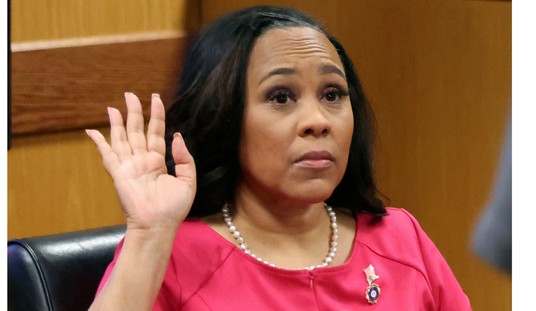Appearing for a guest stint on the Washington Post editorial pages is writer and editor Amanda Bennett, who delivers a long and heartfelt message to Will Dana, the managing editor of Rolling Stone. In it, she lays out a brief but brutal history of the magazine’s coverage of the University of Virginia gang rape story fiasco. From there, she diverges to a general lecture on the perils and pitfalls which await journalists seeking glory while attempting to maintain the finest standards of the profession. This lesson is delivered in the voice of an old friend and mentor, concerned not only with the subject of the tale, but the welfare of the fourth estate in general. With all of that as prologue, she whips out a shiv for the final cut.
There remains a chance to pull some good out of this.
First you must resign. It was the job of the reporter and the editor on the story to get the facts. But it was your job to make sure they did — and that you could stand behind what you published. You did not do this. You must acknowledge this and step down.
Once you have resigned, you need to spend some time using your experience to help show everyone what happens when you believe the narrative you want to believe. Share your experience with Old Media. We can certainly use a refresher course. Share it with New Media. Spare younger journalists the pain of your experience. And share it with us all. We all need to hear this again and again.
We could almost stop right there and wrap this up with a bow as a job well done. But buried in the course material Ms. Bennett is dispensing there are a few nuggets which show that the general state of affairs in print journalism is suffering from a sickness of its own. It’s one which the casual observer can pick up on whenever we flip through the pages of the largest papers or listen to the network news anchors, but perhaps being too close to the situation blinds one to their own shortcomings.
Bennett is no casual observer of the fish wrap trade. She is a graduate of Harvard, where she served as an editor of The Crimson. She had along career as a reporter for the Wall Street Journal before taking the helm as editor of The Lexington Herald-Leader and later The Philadelphia Inquirer. She’s been the recipient of multiple Pulitzer Prizes in her time. And yet, for all of that, after warning the intended recipient of the dangers of allowing the narrative to take control, she included the following disturbing notes in her instructions to Will Dana. (Emphasis added.)
There is nothing wrong with pursuing a strong story, or even with having a strong point of view. Advocacy demands it. And journalism, like science, is often at its best when pursuing a powerful thesis statement. A crime was committed here. An administration is corrupt. This system is unjust. There is nothing wrong with such advocacy journalism. The search for social change in a cause you believe in is an admirable pursuit.
But a strong narrative without the underpinning of facts is bias. And bias can morph in the blink of an eye into destruction, fear and suspicion. Look all around us for evidence of it from recent news events: All black men are threatening. All police are brutal. Our courts mete out justice. Our courts cannot be trusted. All Muslims are terrorists. All Christians are intolerant. All men are would-be rapists. All women are liars.
You, Will — as editor of a major publication with huge readership and huge credibility — had an obligation to do one thing well, and that was to find out what really happened. Everyone should do this before they make up their minds, forward a post, condemn an actor, a politician, a school, a system. For you, Will, whose publication commands so many resources and so much respect, that was your primary obligation. To temper the narrative with the truth. And it was to do so before you passed this story on to others.
It is rare and rather stunning to read such an experienced journalist and editor – one who can command a temporary lectern at the Washington Post, no less – and see her so blithely admit as little more than background footage what so many readers rail against on a daily basis. Just to utter the phrase, there is nothing wrong with such advocacy journalism, speaks volumes about today’s media. You see, the line between advocacy journalism and narrative journalism could be constructed out of a single line of carbon atoms. I suppose a preference for the phrase “advocacy journalism” pays itself the compliment of essentially saying, yes, I was pushing my own bias and narrative, but I made darned sure that the quotes were correct and the words were properly spelled.
A true journalist and editor in what we perhaps fancifully picture as the golden era of news coverage would be horrified by describing part of a journalist’s job as the search for social change in a cause you believe in. A true journalist would be an observer of and reporter on social change, not a self declared agent of such change, no matter how carefully the facts in the article were checked. Your job is to observe history, not guide it. If your secret desire is to save humanity from itself you need to either run for elected office or arrange to be bitten by a radioactive arachnid. And yet, Bennett lectures the Rolling Stone editor on the need to temper the narrative with the truth. The mind doth boggle.
Bloggers and editorial writers are all familiar with the concept of selecting news items which support our theme and likely lending them greater weight than reports of instances which run afoul of said theme. But that is editorial license and the presence of advocacy is a given. No rational observer reads a column by George Will or watches an episode of Ed Schultz and expects a barrage of unadorned facts which leaves the consumer to sort out the pieces on their own. But it is also made clear that we are consuming advocacy in action. When we read the front page of the Washington Post or tune in to a CNN Newsroom anchor, we are expecting news. And the same should have allegedly held true for the UVA article in the Rolling Stone.
Sadly, as we have come to learn, there is little in the way of hard news out there. And no matter what the authors and editors choose to call it, it is narrative journalism nearly everywhere you look. Bennett’s examples are all too apt; police are brutal, the courts can not be trusted and all men are would-be rapists. Or at least that’s what you would come to believe if you consume far too much of cable news and major newspaper reporting these days. The sad part is that some of their most wizened heads now seem to weave an acceptance of this into their own manifestos on keeping the art of news coverage pure.








Join the conversation as a VIP Member